ELECTRONICS CIRCUIT LABORATORY
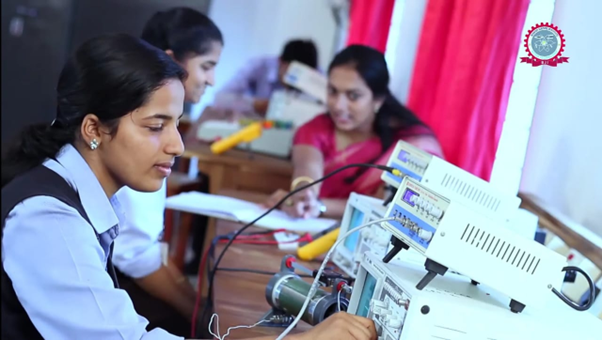
The Electronic Circuits Lab is crucial for students to develop practical skills, reinforce theoretical knowledge, and gain confidence in working with electronic circuits, which are essential for a career in electronics engineering. In this lab, students often work with basic electronic components such as resistors, capacitors, inductors, and transistors to understand their behaviour and use in various circuits. They also learn how to use test and measurement equipment such as oscilloscopes, multimeters, and function generators to analyse and troubleshoot circuits.
MICROWAVE &OPTICAL COMMUNICATION LABORATORY

The Microwave and Optical Communication Laboratory is essential for students studying telecommunications, as it provides them with practical skills and insights into the design and operation of modern communication systems using microwave and optical technologies. In this lab, students typically work with equipment and devices used in microwave and optical communication systems. They learn about the characteristics of electromagnetic waves, microwave components (such as waveguides, antennas, and filters), and optical components (such as fibers, lasers, and detectors).
DIGITAL INTEGRATED CIRCUITS LABORATORY/ COMMUNICATION SYSTEM LABORATORY
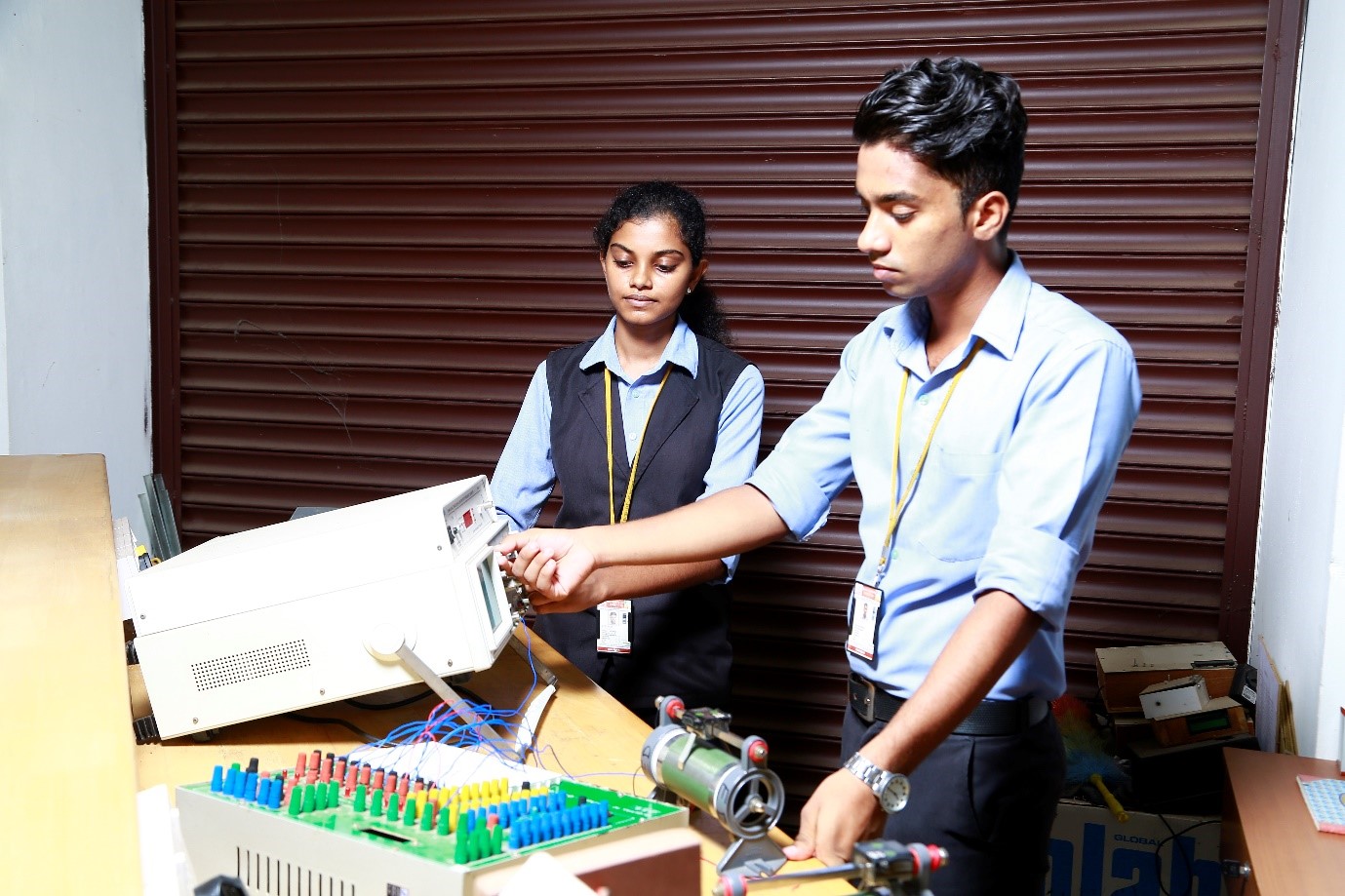
Both the Digital Integrated Circuits Laboratory and the Communication System Laboratory play a crucial role in bridging the gap between theory and practice in the fields of electronics, electrical engineering, and telecommunications. In Digital Integrated Circuits lab, students typically work with software tools for digital design, simulation, and layout. They learn about various digital IC technologies, such as CMOS (Complementary Metal-Oxide-Semiconductor), and how to design and implement digital circuits using these technologies. In Communication System lab, students typically work with equipment and tools used in communication systems, such as modulators, demodulators, antennas, and signal analyzers. They learn about different modulation techniques, transmission media, and communication protocols.
ANALOG INTEGRATED CIRCUITS LABORATORY/ COMMUNICATION ENGINEERING LABORATORY
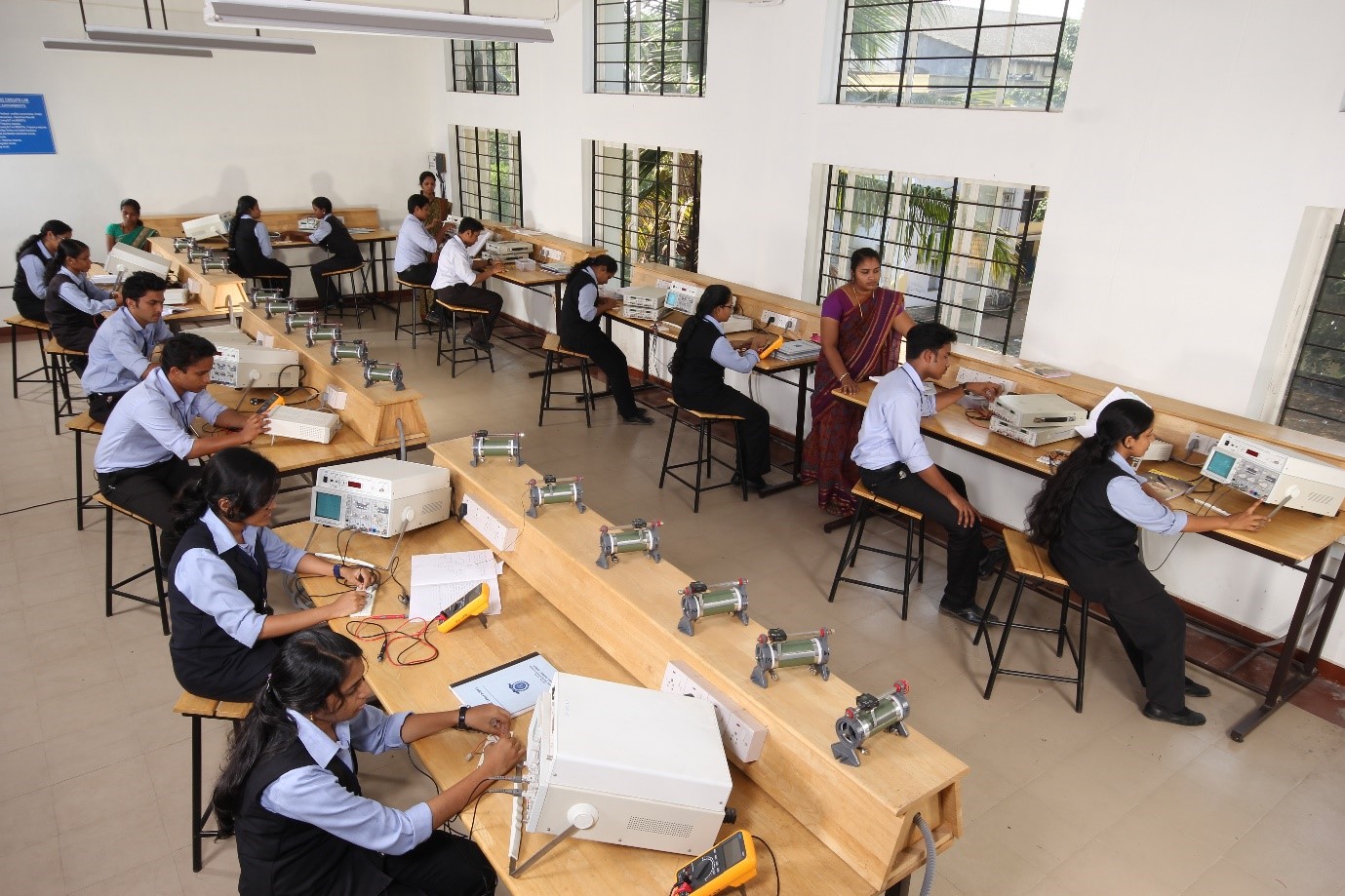
Both the Analog Integrated Circuits Laboratory and the Communication Engineering Laboratory play a crucial role in providing students with practical skills and insights into the design and operation of analog circuits and communication systems, which are essential for a career in electronics and communication engineering. In Analog Integrated Circuits lab, students typically work with software tools for analog design, simulation, and layout. They learn about various analog IC technologies, and how to design and implement analog circuits using these technologies. In this lab, students typically work with equipment and tools used in communication systems, such as transmitters, receivers, antennas, and spectrum analyzers. They learn about different communication techniques, such as modulation, coding, and multiplexing, and how to design and implement communication systems using these techniques.
ELECTRONIC DEVICES LABORATORY

The Electronic Devices Laboratory play a crucial role in providing students with practical skills and insights into the design and operation of electronic devices and systems used in various applications, including consumer electronics, telecommunications, and industrial automation. In Electronic Devices lab, students typically work with various semiconductor devices, such as diodes, transistors, and operational amplifiers. They learn about the operating principles of these devices, their characteristics, and how to use them in electronic circuits.
ELECTRONICS WORKSHOP
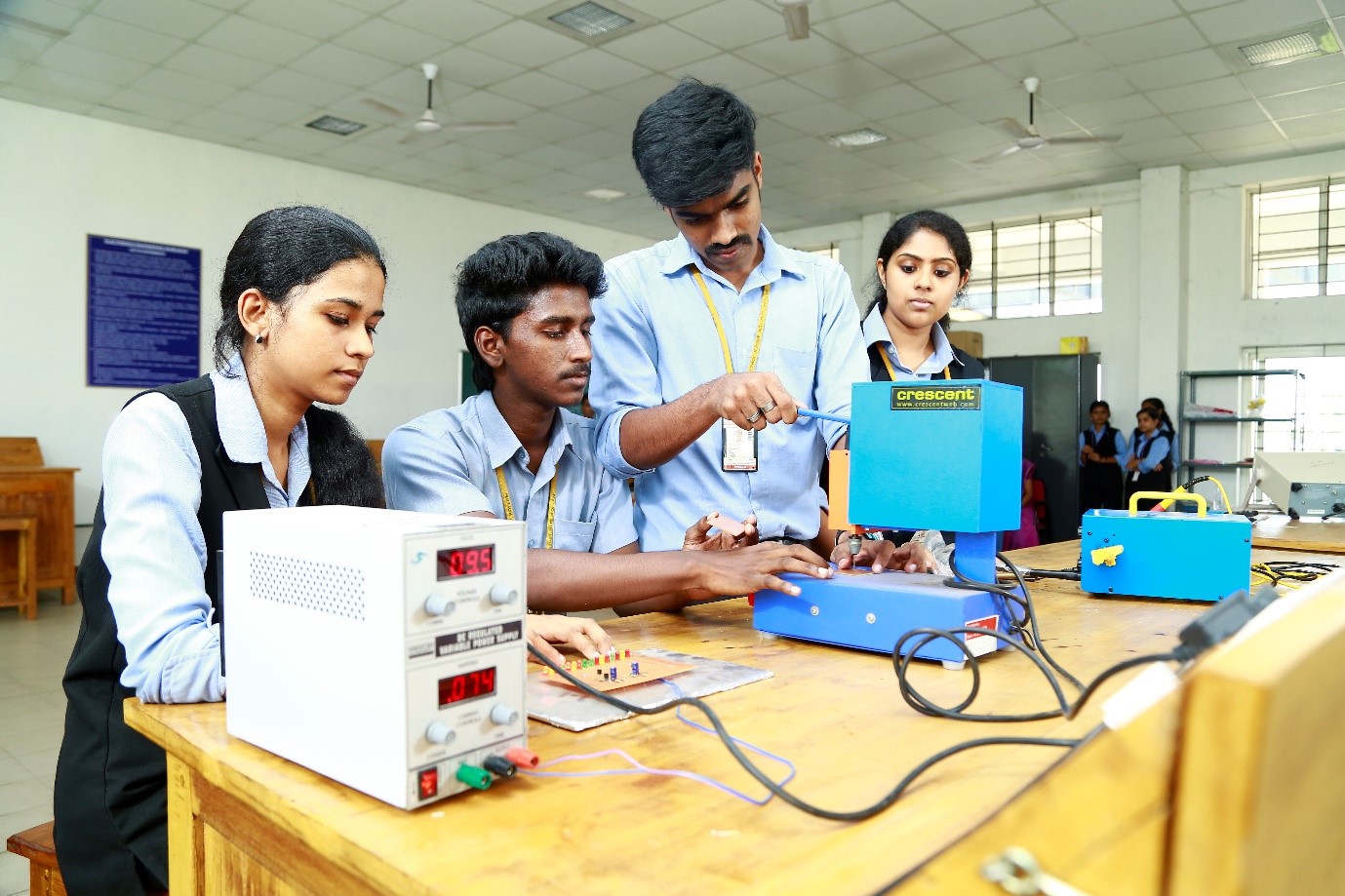
The Electronic Workshop is a practical hands-on laboratory where students apply their knowledge of electronics to design and build electronic products. It is a space dedicated to practical learning and experimentation in electronics and is typically equipped with tools, equipment, and components necessary for building, testing, and repairing electronic circuits and devices. They then go through the process of designing the product, selecting components, and building the prototype. This process may involve circuit design, PCB (Printed Circuit Board) layout, integrating sensors or other electronic components.
DIGITAL SIGNAL PROCESSING LABORATORY / MICROCONTROLLER LABORATORY
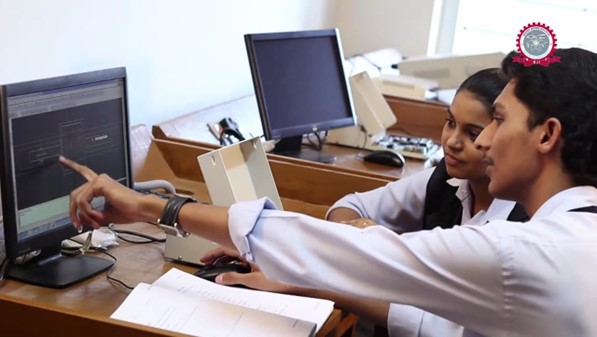
Both labs play a crucial role in electronics and communication engineering education, offering practical insights and skills that are highly relevant to modern technology industries. Students engage in experiments that involve processing and analyzing digital signals, such as audio, video, and sensor data. They often use software like MATLAB, LabVIEW, along with hardware platforms designed for signal processing tasks. On the other hand, the Microcontroller Lab focuses on understanding and working with microcontrollers, which are small computer systems on a single integrated circuit. These labs provide students with hands-on experience in programming, interfacing, and designing embedded systems using microcontrollers.
| DEPARTMENT OF ELECTRONICS AND COMMUNICATION ENGINEERING | ||||
| Laboratory In-Charges | ||||
| No | Name of Laboratory | Name of Faculty In-Charge | Name of Lab Instructor In-charge | ROOM NO: |
| 1 | ELECTRONIC CIRCUIT LAB | Mrs. NEETHU MARY RAJU | Mrs. JANCY J | 305 |
| 2 | DIGITAL INTEGRATED CIRCUITS LAB/ COMMUNICATION SYSTEM LAB |
Mr. MAHESH SANKAR | Mrs. MERCY | 308 |
| 3 | DIGITAL SIGNAL PROCESSING LAB/ MICROCONTROLLER LAB |
Mrs. DEEPTHI FELIX | Mrs. MERCY | 309 |
| 4 | MICROWAVE &OPTICAL COMMUNICATION LAB |
Mrs. ANJU D S | Mrs. JANCY J | 310 |
| 5 | ANALOG INTEGRATED CIRCUITS LAB/ COMMUNICATION ENGINEERING LAB |
Mrs. BLESSY BABU | Mr. BIBI PHILIP | 406 |
| 7 | ELECTRONIC PRODUCT DESIGN & MINI PROJECT LAB |
Mrs. SREEJA V | Mr. Rojan ROBERT | 408 |
- Overview
- Program Outcomes (POs)
- Program Specific Outcomes (PSOs)
- Program Educational Objectives (PEOs)
- Curriculum/Syllabus
- Faculty and Technical Staff
- Events
- Activities
- Department Associations
- Internships
- Industrial Visit
- Workshops
- Faculty and Technical Staff Achievements
- FDP Organized
- FDP Attended
- Staff Achievements
- Industry Interaction
- Publications
- Student Achievements
- Conferences
- MoUs
- Lab Facilities
- Photo Gallery
- Newsletters
- Brochure
